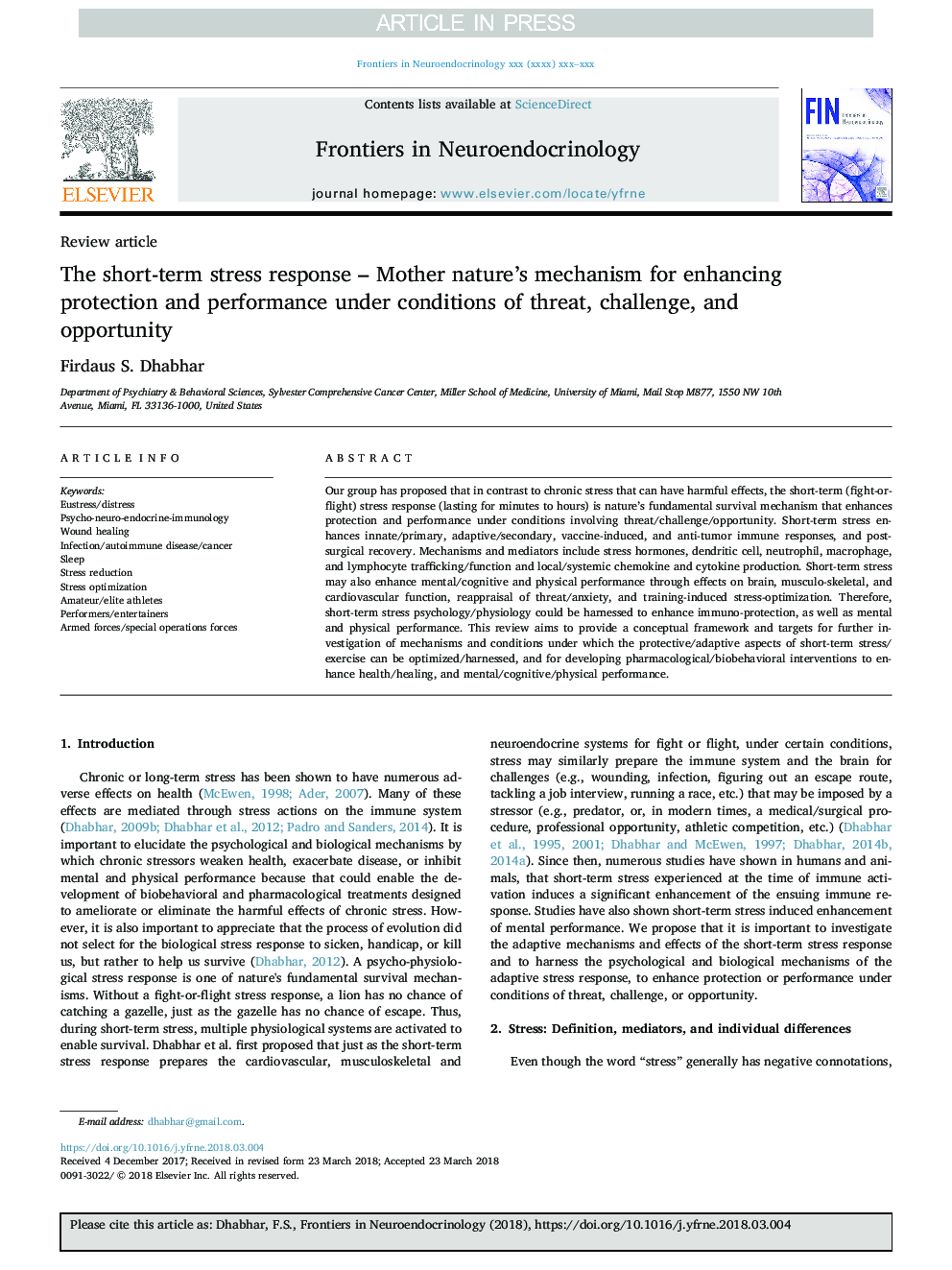| Article ID | Journal | Published Year | Pages | File Type |
|---|---|---|---|---|
| 8630556 | Frontiers in Neuroendocrinology | 2018 | 18 Pages |
Abstract
Our group has proposed that in contrast to chronic stress that can have harmful effects, the short-term (fight-or-flight) stress response (lasting for minutes to hours) is nature's fundamental survival mechanism that enhances protection and performance under conditions involving threat/challenge/opportunity. Short-term stress enhances innate/primary, adaptive/secondary, vaccine-induced, and anti-tumor immune responses, and post-surgical recovery. Mechanisms and mediators include stress hormones, dendritic cell, neutrophil, macrophage, and lymphocyte trafficking/function and local/systemic chemokine and cytokine production. Short-term stress may also enhance mental/cognitive and physical performance through effects on brain, musculo-skeletal, and cardiovascular function, reappraisal of threat/anxiety, and training-induced stress-optimization. Therefore, short-term stress psychology/physiology could be harnessed to enhance immuno-protection, as well as mental and physical performance. This review aims to provide a conceptual framework and targets for further investigation of mechanisms and conditions under which the protective/adaptive aspects of short-term stress/exercise can be optimized/harnessed, and for developing pharmacological/biobehavioral interventions to enhance health/healing, and mental/cognitive/physical performance.
Keywords
Related Topics
Life Sciences
Biochemistry, Genetics and Molecular Biology
Endocrinology
Authors
Firdaus S. Dhabhar,
